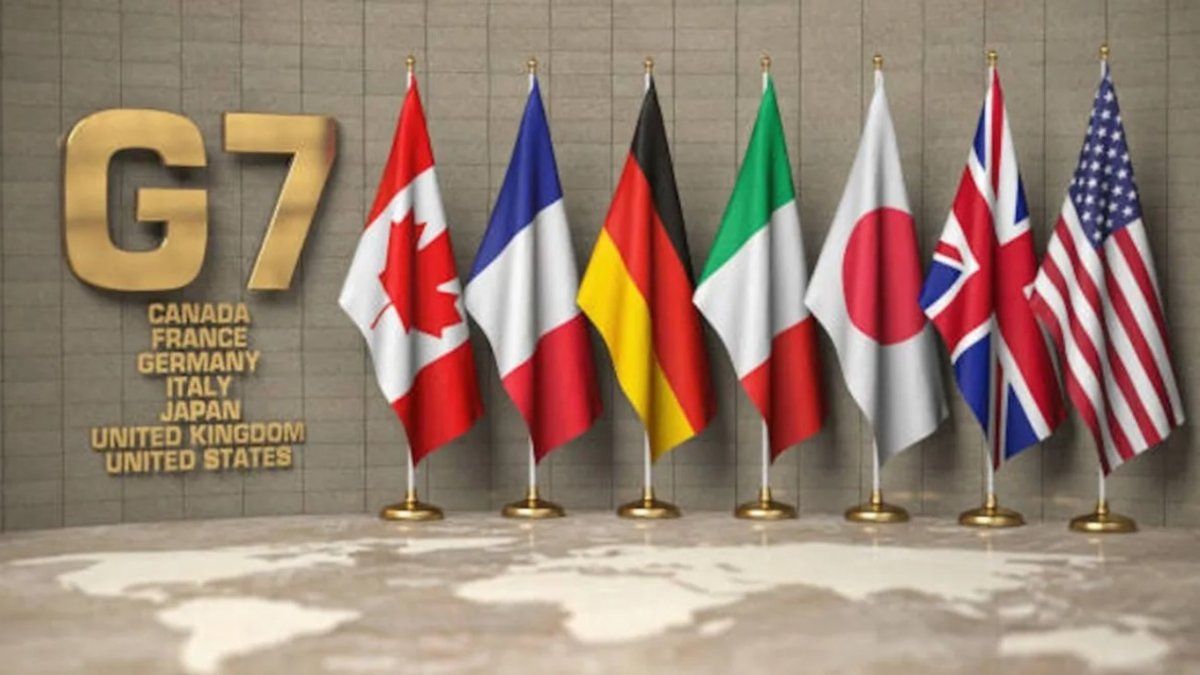The Ministers of Energy and Environment of the G7 countries They agreed on Sunday to speed up the move away from fossil fuels, though without setting a new deadline to phase out polluting energy sources such as coal.
In a statement issued after two days of meetings in northern Japan, ministers from the world’s seven largest economies proposed actions to keep global warming below the limit of 1.5 degrees Celsius.
G7: countries will eliminate the use of fossil fuel
“We emphasize our commitment in the context of the global effort to accelerate the phase-out of fossil fuels to achieve net-zero emission energy systems by 2050 at the latest”the ministers said in a statement after their meeting in Sapporo, in northern Japan.
But the group offered no new deadline beyond the one it adopted last year, when it proposed phasing out much of the use of fossil fuels in its power sectors by 2035.
French Energy Transition Minister Agnes Pannier Runacher said the call for a “phasing out” of fossil fuels was a “firm step forward” ahead of the upcoming G20 and COP28 summits.
Britain and France have proposed removing coal from G7 energy mixes during the current decade, but the goal was rejected by other members including Japan and the United States, citing pressure on energy supplies caused by the war in Ukraine.
The club of major industrialized countries (Canada, France, Germany, Italy, Japan, the United Kingdom and the United States) is under pressure to show unity and step up action following the latest alarming report from the Intergovernmental Panel on Climate Change ( IPCC), published last month.
fossil fuels.jpg
Pixabay
According to the IPCC, global warming caused by human activity will cause average temperatures to rise 1.5 ºC compared to the pre-industrial era from 2030-2035.
They are also expected to set the tone against global warming for important meetings that will take place this year, such as the G20 in India and COP 28 in Dubai.
The ministers also announced the goal of ending plastic pollution in their countries by 2040.
“We are committed to ending plastic pollution, with the ambition to reduce additional plastic pollution to zero by 2040”says the statement.
Germany, France, “We are committed to ending plastic pollution, with the ambition to reduce additional plastic pollution to zero by 2040.” The UK, Canada and the European Union are already part of an international coalition that committed to this goal last year. But it is the first time that the United States, Italy and Japan have joined the goal.
The challenge is great. The amount of plastic garbage has doubled in the last 20 years and only 9% is recycled, according to the Organization for Economic Cooperation and Development (OECD).
Several NGOs feared that the ministerial meeting would lead to a setback in terms of climate commitments, especially due to the conservative positions of the host country.
Japan, which is highly dependent on the import of fossil fuels, wanted to use the occasion to demand new investment in the gas sector in the name of “energy security”, with the disruption caused in that area by the Russian invasion of Ukraine in February 2022.
In 2022, the G7 decided to tolerate gas investments as a “interim” response to “exceptional circumstances” related to the war in Ukraine.
Sunday’s statement includes similar approaches, but also establishes various parameters around such investments and highlights the “primary need” for a “reduction in gas demand.”
The G7 also reaffirmed its commitment to work with other developed countries to raise 100 billion dollars a year for emerging countries to combat global warming. The promise dates back to 2009 and was to be fulfilled by 2020.
Source: Ambito




